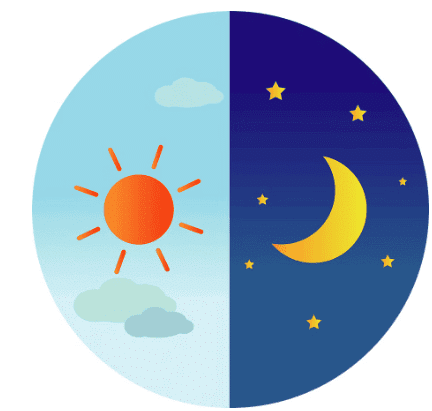Worksheet: Night | Worksheets with solutions for Class 3 PDF Download
| Table of contents |

|
| Fill in the Blanks |

|
| True or False |

|
| One Word Answer Type Questions |

|
| Short Question and Answers |

|
Fill in the Blanks
Q1: The sun shines all day so __________.
Q2: At night, the sun sinks behind a distant __________.
Q3: When the world grows dark, I go to __________.
Q4: I sleep until the day begins to __________.
Q5: When I open my eyes, I see the sun is __________ down on me.

True or False
Q1: The sun is only visible during the night.
Q2: The poem describes a cycle of day and night.
Q3: The speaker goes to sleep before the sun rises.
Q4: The sun shines down on the speaker when they wake up.
Q5: The poem mentions how the world becomes noisy at night.

One Word Answer Type Questions
Q1: What is the main celestial body discussed in the poem?
Q2: What does the speaker do at night?
Q3: What natural phenomenon occurs when the sun sets?
Q4: What action does the sun take at night?
Q5: What does the speaker see when they wake up?

Short Question and Answers
Q1: Where does the sun go at night according to the poem?
Q2: What does the speaker feel when the world grows dark?
Q3: How does the speaker describe the morning?
Q4: What is the first thing the speaker sees upon waking?
Q5: What does the poem suggest about the relationship between day and night?
You can access the solutions to this worksheet here.
FAQs on Worksheet: Night - Worksheets with solutions for Class 3
| 1. What is the main focus of the Night Class 3 article? |  |
| 2. Who is eligible to enroll in Night Class 3? |  |
| 3. What subjects are offered in Night Class 3? |  |
| 4. How long does the Night Class 3 program last? |  |
| 5. What are the benefits of attending Night Class 3? |  |

|
Explore Courses for Class 3 exam
|

|

















